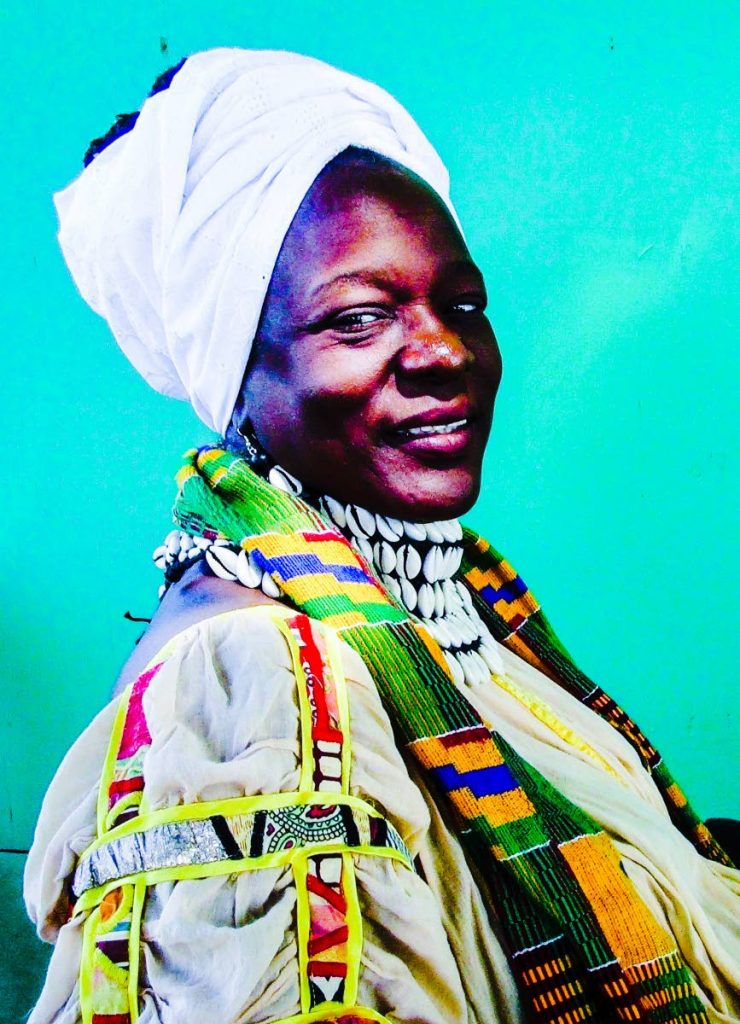Fondes Amandes NGO leads bush, forest fire policy talks

THE ST ANN's community-based Fondes Amandes Community Reforestation Project (FACRP) has engaged private- and public-sector stakeholders for its second series of consultations to develop a comprehensive draft national bush and forest fire policy (DNBFF).
Earlier this month the FACRP, led by co-founder and executive director Akilah Jaramogi, hosted a workshop for a number of crucial stakeholders from the police and fire services, the Environmental Management Authority, the Ministry of Agriculture's Forestry Division and the Institute of Marine Affairs, among others.
It was staged in partnership with UWI's Institute of Gender and Development Studies (IGDS).
Technical director and environmentalist Kemba Jaramogi told Newsday the second of three workshops was designed "to (measure) how we're doing with this policy; where we're going; what can be done differently; what more needs to be added; and what type of work they (public stakeholders) are doing to complement the work we're suggesting or promoting in the policy.
"The original idea is that we wanted to set up a national fire management plan, and then, because the pandemic started, we had to switch gears and we thought, 'What better way to have that concrete, long-term impact?'"
Among the main goals of the draft policy are: to reduce the frequency, intensity and prevalence of bush and forest fires (BFF) in TT; improve co-ordination of BFF management resources, knowledge and skills among stakeholders; updating the legislative framework governing BFF; develop an integrated technology-enabled system for BFF monitoring and data-sharing; and increasing participation of the public in BFF management.
Although the FACRP wants to complete the draft policy by next July or August, Jaramogi is wary, knowing policies can and do sometimes take decades to be implemented.
And, apart from adopting a policy, Jaramogi said, there is the important matter of policing and enforcement, which has proven the biggest hurdles in preventing and combating forest and bush fires.
"In terms of looking at policing and holding people accountable, long-time you could've said, 'That's a man from the community,' and you hold him and carry him to the police station...
"Now (you have) a situation where there is so much disaggregation in communities; you don't have the gelling in communities like you used to. You have people moving out and moving in.
"In terms of policing, we really need the State to play an active role just because people are more careful for (their safety)."
Policy consultant Taresa Best explained the relationship between the FACRP and UWI's IGDS in developing the policy.
"One of our greatest challenges when it comes to all policies is the inability for us to conceptualise the different ways in which any issue affects men equally, differently and in (different) contexts.
"So what you found is that in the last ten years, the UN has made a point of implementing and promoting the implementation of policies from a gender-mainstreaming perspective.
"It's not about looking at women," she said, but about looking at the different ways policy affects different genders.
"When it comes to BFF, we understand a couple things. We know that men are particularly involved in fighting of fires.
"What we also know is that when it comes to the tending of land, women play a particular role."
Best said the FACRP, for example, was led by an "influential patriarch," but later dominated by a group of mostly women when he passed on.
"There's another way of looking at it: when a house floods, how does that affect a family? The cleaning up, taking care of the children, who's setting the fires (leading to floods), what's the reason for setting the fires?
"It takes a gendered lens with a view to understanding the role that men and women may play differently so that we can also effect change with that in mind."
The FACRP celebrates its 40th anniversary as a formal organisation this year. Although founded in 1982 by husband and wife team Tacuma and Akilah Jaramogi, the organisation's unofficial roots date back to the 1970s.
Since the early 1990s, the community project has been transformed from an informal group to an award-winning organisation, trusted with private and public grants to undertake ecological restoration works and many other initiatives.
The FACRP has been subject to a number of case studies, including one funded by the EU and published in 2010.
One of its findings was that: "The annual occurrence of fires set during the dry season for farming, hunting, garbage-burning, bush-clearing, for mischief or by accident, began to further transform the landscape, establishing areas of fire climax grassland punctuated by bamboo, cocorite palm and other fire-tolerant species.
"By the 1980s, Fondes Amandes was identified as a fire 'hot spot,' the frequent origin of fires that would then sweep up and pass over adjacent ridges."
The prevalence of bush and forest fires is exacerbated, many stakeholders agree, by climate change.

Comments
"Fondes Amandes NGO leads bush, forest fire policy talks"